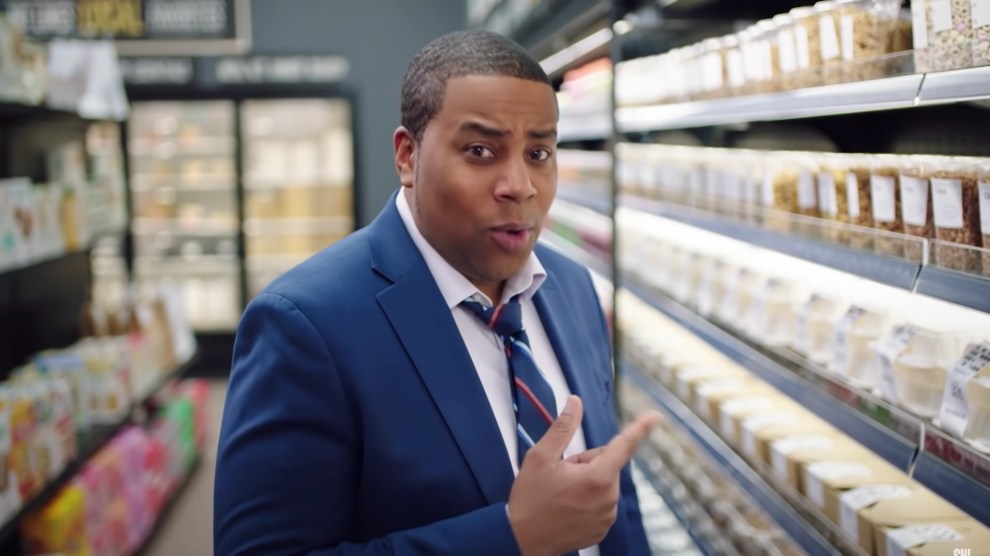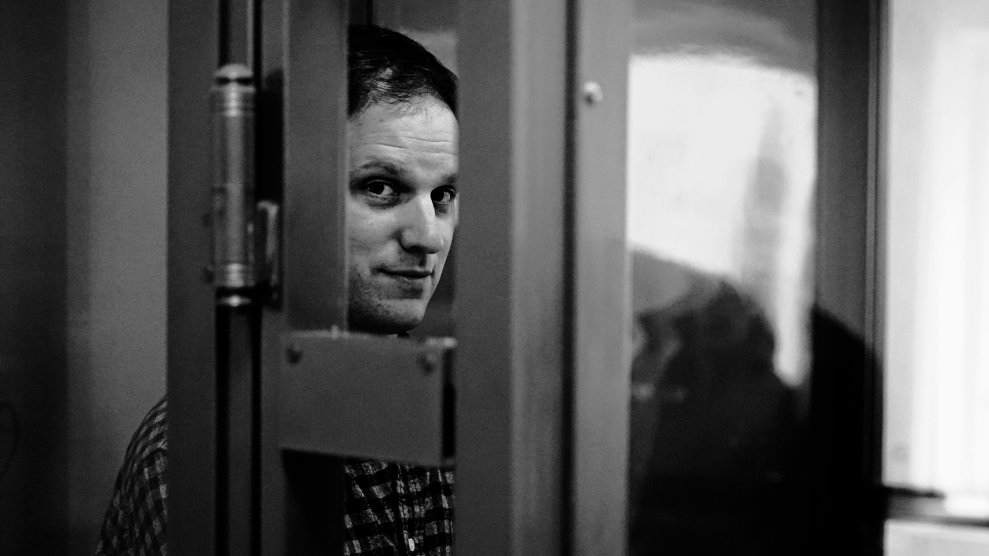
YouTube/Saturday Night Live
The best comedy, in my opinion, is the stuff that reveals larger truths about society. As the late British actor Peter Ustinov once said, “Comedy is simply a funny way of being serious.”
A new skit from Saturday Night Live—a spoof commercial featuring The Batman actor and absolute goddess Zoë Kravitz—does exactly that. The skit opens with a white, male character (James Austin Johnson), wearing a signature tech bro flannel and puffy vest, entering an Amazon Go store, one of the company’s newish brick-and-mortar businesses which allow customers to purchase items by scanning an app upon entry. “No lines, no checkouts,” a narrator voices over. “No problem,” a white woman dressed in athleisurewear (Chloe Fineman), says to the camera as she exits the store. “At an Amazon Go store,” the narration continues, “you can walk in, grab what you want, put it in your bag, and just go.”
Then, the skit takes a turn. The commercial cuts to a Black customer, portrayed by SNL legend Kenan Thompson, who says, “Oh so you want me to just take something and walk out? Nah son,” he says, an implied reference to the racial bias Black and brown shoppers face in the United States.
Similarly, Kravitz’s character, shopping with a white partner (Andrew Dismukes), spots her “favorite brand of kombucha” on the shelf—but can’t bring herself to pick it up for what we can assume is a similar reason. “Can you grab it?” she asks him. “Me? What? No, just grab it,” he replies. The two bicker until he finally grabs the bottle and says, “I’m learning.”
Another Black shopper, played by Chris Redd, takes a turkey club sandwich from off the shelf, but changes his mind about it and puts it back. “I am putting the sandwich back y’all,” he says loudly. “I have decided to get a different sandwich today.” The penultimate scene cuts back to Redd saying frantically, “Alexa, search Amazon Go store Black man trapped.”
Watch it for yourself:












